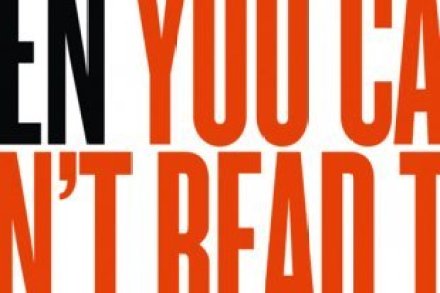An Advertisement for Myself
My You Can’t Read This Book: Censorship in an Age of Freedom is out this week. As the title says, it’s about freedom of speech, a subject that has come to mean more and more to me as I have watched religious zealots intimidate liberals into silence, and the libel laws and omerta of City hierarchies stop investigations into a catastrophic financial system when they might have made a difference. Writing in this week’s magazine, Alain de Botton talks about how authors can loathe critics, a feeling prompted in his case by a savage attack from Terry Eagleton. He ought to be less concerned. Given the professor’s ability to combine






